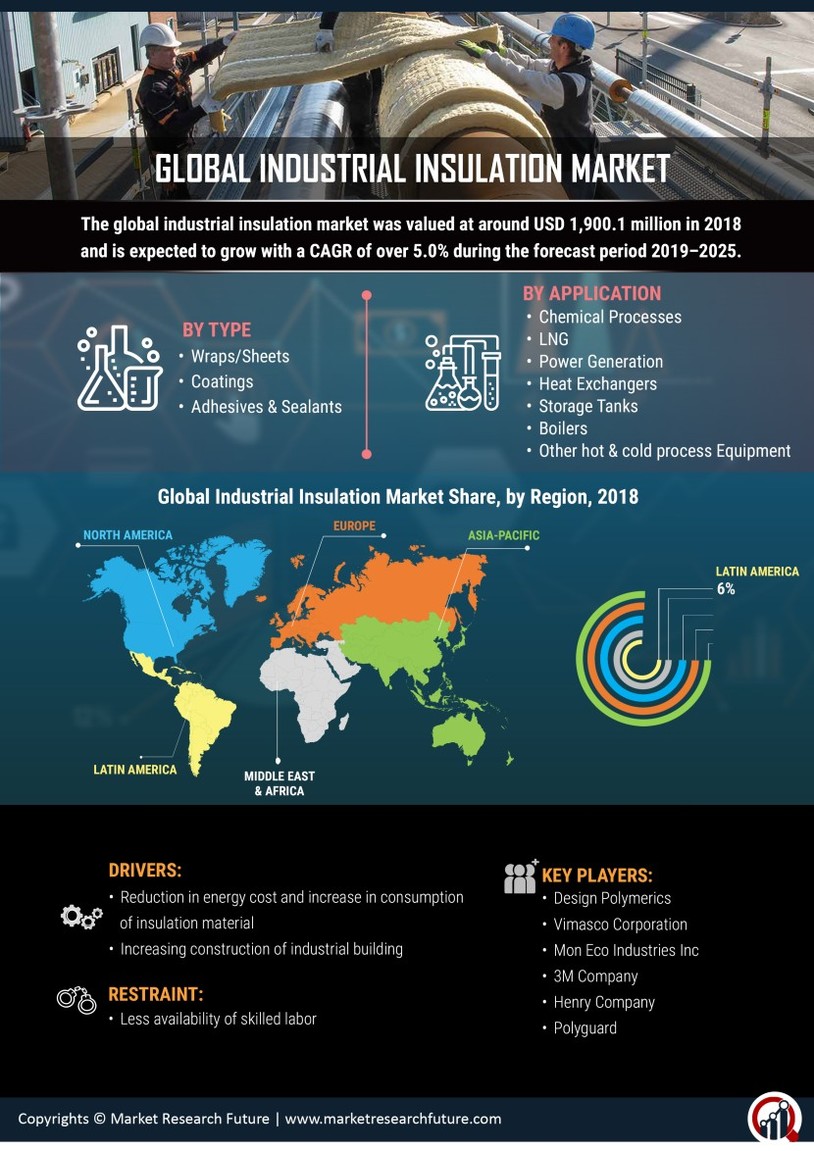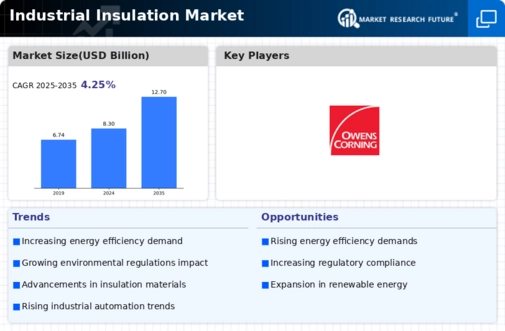Market Growth Projections
The Global Industrial Insulation Market Industry is projected to experience substantial growth in the coming years. The market is expected to reach 8.3 USD Billion in 2024 and is anticipated to grow to 12.7 USD Billion by 2035. This growth trajectory indicates a robust compound annual growth rate (CAGR) of 3.97% from 2025 to 2035. Such projections reflect the increasing demand for insulation solutions driven by energy efficiency, regulatory compliance, and technological advancements. The market's expansion is likely to be supported by the rising industrial activities and the growing emphasis on sustainability across various sectors.
Regulatory Compliance and Standards
The Global Industrial Insulation Market Industry is significantly influenced by stringent regulatory frameworks aimed at enhancing safety and environmental standards. Governments worldwide are implementing regulations that mandate the use of high-performance insulation materials to reduce greenhouse gas emissions and improve workplace safety. For example, the introduction of energy efficiency standards in the European Union has compelled industries to upgrade their insulation systems. This regulatory push not only fosters innovation in insulation technologies but also drives market expansion, as companies strive to comply with these evolving standards. The anticipated growth trajectory suggests that the market could reach 12.7 USD Billion by 2035, indicating a robust response to regulatory demands.
Growing Demand for Energy Efficiency
The Global Industrial Insulation Market Industry experiences a notable surge in demand driven by the increasing emphasis on energy efficiency across various sectors. Industries are actively seeking insulation solutions that minimize energy loss, thereby reducing operational costs. For instance, the market is projected to reach 8.3 USD Billion in 2024, reflecting a growing awareness of sustainable practices. This trend is particularly evident in manufacturing and processing industries, where insulation plays a crucial role in maintaining optimal temperatures and enhancing energy conservation. As regulations tighten globally, the adoption of advanced insulation materials is likely to accelerate, further propelling market growth.
Rising Industrialization and Urbanization
The Global Industrial Insulation Market Industry is poised for growth due to the rapid industrialization and urbanization trends observed globally. As countries develop, there is a corresponding increase in manufacturing activities, which necessitates effective insulation solutions to manage energy consumption and enhance operational efficiency. For instance, emerging economies in Asia-Pacific are witnessing a construction boom, leading to heightened demand for industrial insulation in various sectors, including petrochemicals and power generation. This trend is expected to drive significant market expansion, as industries seek to optimize their processes and comply with environmental standards, thereby reinforcing the market's growth trajectory.
Technological Advancements in Insulation Materials
Technological innovations are reshaping the Global Industrial Insulation Market Industry, leading to the development of advanced insulation materials that offer superior performance. Innovations such as aerogel and vacuum insulation panels are gaining traction due to their exceptional thermal resistance and lightweight properties. These advancements enable industries to achieve higher energy efficiency and lower operational costs. Furthermore, the integration of smart technologies into insulation systems allows for real-time monitoring and optimization of thermal performance. As these technologies become more accessible, their adoption is likely to increase, contributing to a projected CAGR of 3.97% from 2025 to 2035, thereby enhancing the overall market landscape.
Focus on Sustainability and Green Building Practices
The Global Industrial Insulation Market Industry is increasingly influenced by the global shift towards sustainability and green building practices. Industries are recognizing the importance of adopting eco-friendly insulation materials that not only reduce energy consumption but also minimize environmental impact. This shift is evident in the growing preference for materials such as recycled fiberglass and cellulose, which align with sustainability goals. As businesses strive to enhance their corporate social responsibility profiles, the demand for sustainable insulation solutions is likely to rise. This trend is expected to contribute to the overall growth of the market, as more industries prioritize sustainable practices in their operations.












Leave a Comment